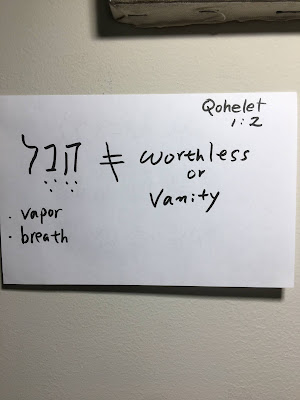Luke brings the good news to the world of today (σήμερον, semeron). Today is the day of salvation. Today scriptures (the word of God) are to be fulfilled in our hearing. Today is the day of repentance and renewal. The lost are found and restored today. God's reign is in the here and now. The poor must be fed now. Blessed are those who are poor. Luke is a smart, realistic theologian who deals with the delay of Parousia with a focus on God's work today. Cognitive dissonance is resolved, as Luke shifts its mission to God's mission today. Though some argue that Luke is an innocuous gospel to the Roman Empire, we cannot ignore the alacrity of Luke's creative strategy emphasizing "today," without which the good news is hollow. See the following texts from Luke, which include the importance of today.
Luke 2:11: To you is born this day (today) in the city of David a Savior, who is the Messiah, the Lord.
Luke 4:21: Then he began to say to them, “Today this scripture has been fulfilled in your hearing.”
Luke 5:26: Amazement seized all of them, and they glorified God and were filled with awe, saying, “We have seen strange things today” (healing a paralytic).
Luke 17:21: For, in fact, the kingdom of God is within or among you (no use of "today," but we see the present tense of God's rule).
Luke 19:5-10 When Jesus came to the place, he looked up and said to him, “Zacchaeus, hurry and come down; for I must stay at your house today.” 6 So he hurried down and was happy to welcome him. 7 All who saw it began to grumble and said, “He has gone to be the guest of one who is a sinner.” 8 Zacchaeus stood there and said to the Lord, “Look, half of my possessions, Lord, I will give to the poor; and if I have defrauded anyone of anything, I will pay back four times as much.” 9 Then Jesus said to him, “Today salvation has come to this house, because he too is a son of Abraham. 10 For the Son of Man came to seek out and to save the lost.”
Luke 23:42-43: Then he said, “Jesus, remember me when you come into your kingdom.” 43 He replied, “Truly I tell you, today you will be with me in Paradise.” (to one of the criminals).

.png)








